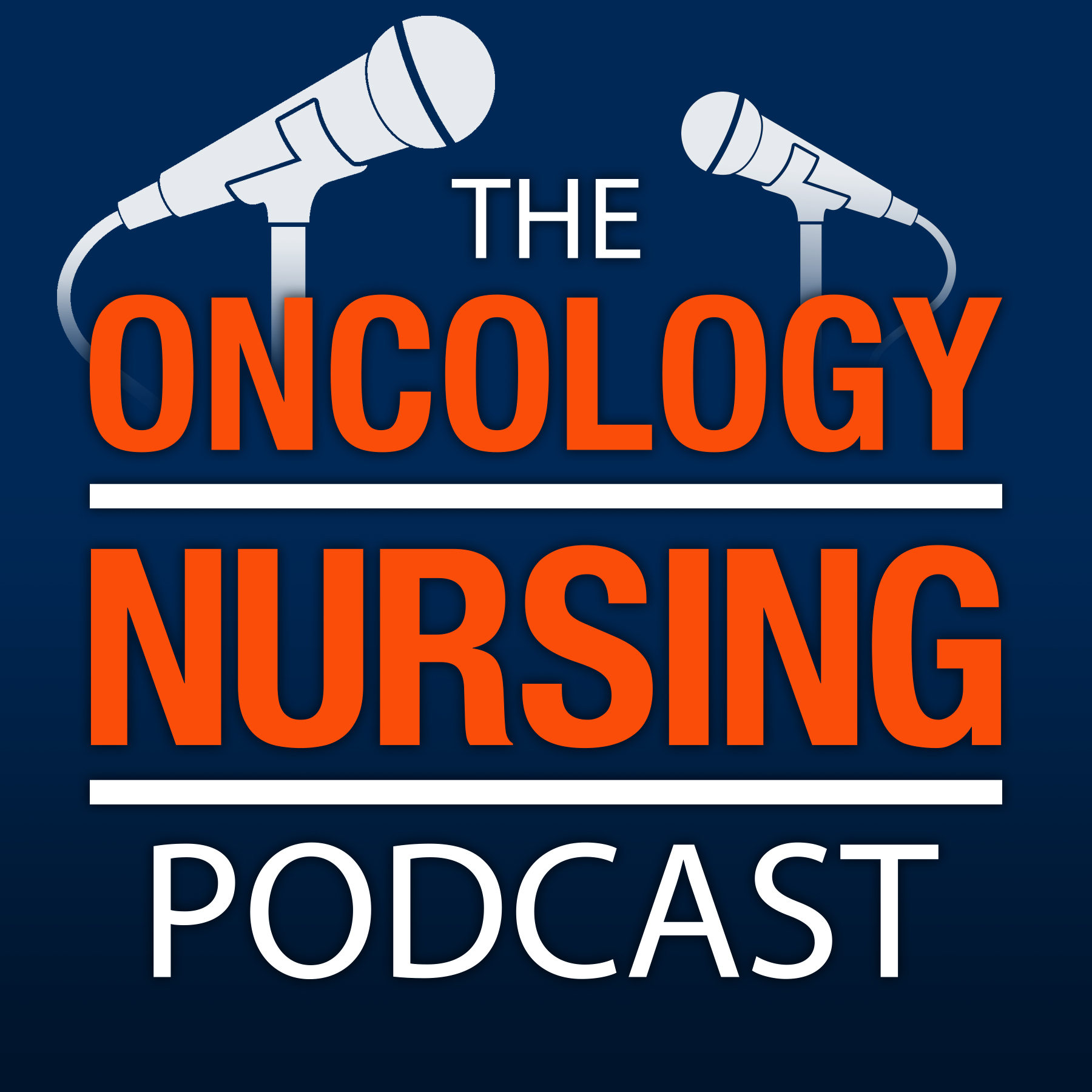Episode 318: Early Mobility for Hospitalized Patients
Description
“We put into effect a program that supports guaranteed mobilization of every patient at least twice a day, which is such a huge change from where we were before, where patients were maybe getting out of bed just to go to the bathroom or maybe just to sit in the chair for one meal a day. So it really had a huge impact on overall mobility,” Jennifer Pouliot, MSN, RN, OCN®, clinical program director of oncology safety and quality at Mount Sinai Health System in New York, NY, told Jaime Weimer, MSN, RN, AGCNS-BS, AOCNS®, manager of oncology nursing practice at ONS, during a conversation about the benefits of mobility in hospitalized patients with cancer.
Music Credit: “Fireflies and Stardust” by Kevin MacLeod
Licensed under Creative Commons by Attribution 3.0
Earn 0.5 contact hours of nursing continuing professional development (NCPD) by listening to the full recording and completing an evaluation at myoutcomes.ons.org by June 28, 2026. The planners and faculty for this episode have no relevant financial relationships with ineligible companies to disclose. ONS is accredited as a provider of NCPD by the American Nurses Credentialing Center’s Commission on Accreditation.
Learning outcome: Learners will report an increase in knowledge related to patient mobility.
Episode Notes
Complete this evaluation for free NCPD. Oncology Nursing Podcast episodes: Episode 195: Exercise’s Effect on Patient and Provider Well-Being Episode 82: Physical Activity Prescriptions in Cancer Care Episode 15: Incorporating Physical Activity in Patient Care 2024 ONS Congress® session: Benefits of an Early Mobility Program for Hospitalized Patients (Presented by Jennifer Pouliot and Mark Liu) ONS Voice articles: Does Dance/Movement Therapy Affect Outcomes for Pediatric Patients With Cancer? During or After Chemo, Exercise Fights Fatigue and Supports Cancer Recovery Exercise Program Improves Quality of Life in Patients With Breast Cancer—and Keeps Them Moving Daily Exercise the Evidence: How I Moved From an Idea to Program Development More Survivors Have Functional Limitations After Cancer What the Evidence Says About Low-Intensity Exercise in Cancer Care What the Evidence Says About Tai Chi in Cancer Care ONS courses: Incorporating Physical Activity Into Cancer Care Quality and Physical Activity Course Bundle Clinical Journal of Oncology Nursing articles: Increased Mobility and Fall Reduction: An Interdisciplinary Approach on a Hematology-Oncology and Stem Cell Transplantation Unit Multimodal Exercise Program: A Pilot Randomized Trial for Patients With Lung Cancer Receiving Surgical Treatment ONS's Get Up, Get Moving resources American Physical Therapy Association’s Activity Measure for Post-Acute Care (AM-PAC) National Database of Nursing Quality Indicators (NDNQI) To discuss the information in this episode with other oncology nurses, visit the ONS Communities.
To find resources for creating an ONS Podcast Club in your chapter or nursing community, visit the Oncology Nursing Podcast™ Library.
To provide feedback or otherwise reach ONS about the podcast, email [email protected].
Highlights From This Episode
“Mount Sinai developed a mobility mission. And this mission included interdisciplinary approach. So that’s talking with the whole team about mobility, knowing the patient’s baseline, documenting and understanding the functional status and that it should not decline during hospitalization. Every patient is mobilized unless medically contraindicated. We have a mission to get patients out of bed for every meal. Physical therapy is not required before nursing can mobilize patients, and then to escalate the inability to mobilize patient to the provider upon admission, so we can address that in real time and see what we can do to make sure that they don’t stay in the bed.” TS 7:30
“We measured the progress of the program through documented mobility interventions,
More Episodes
“Under normal conditions, EGFR [epidermal growth factor receptor] is in an auto-inhibited state. And it’s only when it’s needed that it’s upregulated. But when you have cancers that there is either a mutation in the EGFR or an overexpression, what you see is a dysregulation of normal cellular...
Published 11/08/24
Published 11/08/24
Episode 335: Ultrasound-Guided IV Placement in the Oncology Setting
“Much like many experienced oncology nurses, I learned how to do IVs with palpation. I got really good at it. And so I thought, there’s no way I need this ultrasound. But we know now that our patients are sicker. There are...
Published 11/01/24


